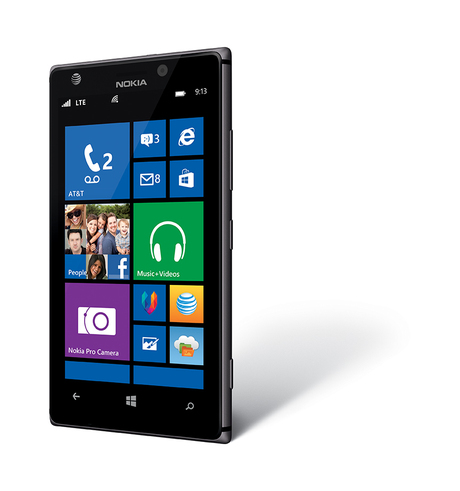Microsoft's Nokia purchase too little, too late?

Two and a half years after entering a closely watched partnership with Nokia, Microsoft has upped the ante on its attempt to build traction for Windows Phone, announcing a €5.44 billion ($7.91 billion) deal to buy Nokia’s devices and services business.
Under the proposed transaction, Microsoft will pay €3.79 billion for Nokia’s devices and services operations. The remaining €1.65 billion will be spent to license Nokia’s patents and to license and use Nokia’s HERE mapping services.
Around 32,000 employees will be transferred to Microsoft - including Nokia’s current CEO Stephen Elop, who will leave the role to lead the transferred devices and services unit.
Nokia would retain its Nokia Solutions and Networks network infrastructure business, HERE and its patent licensing business.
The proposed transaction would be Microsoft’s second-largest acquisition after the US$8.5 billion purchase of Skype in 2011.
The sale, if approved, will mark the end of an era for Nokia. Once undisputed champion of the mobile phone market, the vendor has seen its market share steadily erode as demand shifted towards smartphones, and towards Android and iOS devices in particular.
On the other hand, this will hardly be the first time Nokia has reinvented itself over its 150-year history.
Although Nokia has struggled to compete in smartphones, the vendor still retains a strong share of the feature phone business, particularly in emerging markets. The company ships over 200 million handsets a year.
For Microsoft, the deal marks a change of approach in terms of its strategy for Windows Phone - the company will be building handsets directly rather than relying exclusively on OEMs.
While the company has announced plans to continue making the platform available to OEM partners, Microsoft’s outgoing CEO Steve Ballmer said in an investor presentation that moving into devices directly makes sense.
“There are many theories of Microsoft and where we should go ... And in a simple way, I would say much as apps help operating systems and operating systems help apps, devices help services and services help devices,” he said.
While the company will continue its services push, he said “the device opportunity is perhaps the best opportunity for pursuing users in very, very large numbers”. Nokia also currently represents over 80% of the Windows Phone OEM business.
In Microsoft’s latest swipe at Apple and Google over their control of the Android and iOS app ecosystems, Ballmer added that while the company will continue to support those platforms, “we cannot do a full and first-class experience on those platforms”.
“The level of integration, the level of device support, the level of economic tax taken by the platform vendor, all of those things we run the risk that Google or Apple will foreclose our ability to innovate, to integrate our applications the way we have in Office, to do distribution, or to impose economic terms.”
Observers are sceptical about the potential impact the acquisition will have on Microsoft’s smartphone market share. Telecom analyst Paul Budde said Microsoft and Nokia likely both “left it too late to become major players in the smartphone business. That market is now well settled with roughly 70% market share for Android [and] 25% for Apple.
“Having said that Nokia is still strong in the 2G market and this is still flourishing in Africa, Asia, etc. [Microsoft] might perhaps be able to use this position to ‘do something special’.” But competition from low-cost smartphone vendors from China and India could make this a challenging proposition as well, he added.
IBRS advisor Guy Cranswick noted that Microsoft won’t have much time to prove that the acquisition was the right move. “The fact is that the mobile business is very fast, and Microsoft has three years maximum to make it work, or even show it might work. Though the deal’s costs up front are minor compared to Microsoft’s overall balance, its the costs of integration that can pile up.”
Cranswick said that for Nokia, the size of the proposed deal is “probably more than they might have wished for”.
The company will be able to use the funding injection to support its newly profitable NSN business, he said. “The scramble to dominate market segments and consolidation may work against the remaining Nokia businesses, but time will show what happens there.”
IoT demands alternatives as 3G sunset looms
The impending 3G shutdown is a daunting prospect for organisations across ANZ that rely on...
Broadband measurement shows online gaming stacks up
The ACCC's latest Measuring Broadband Australia report has found that consumer connections to...
BlackBerry stopping one cyber attack per minute
A new report from BlackBerry's Threat Research and Intelligence team highlights the...




